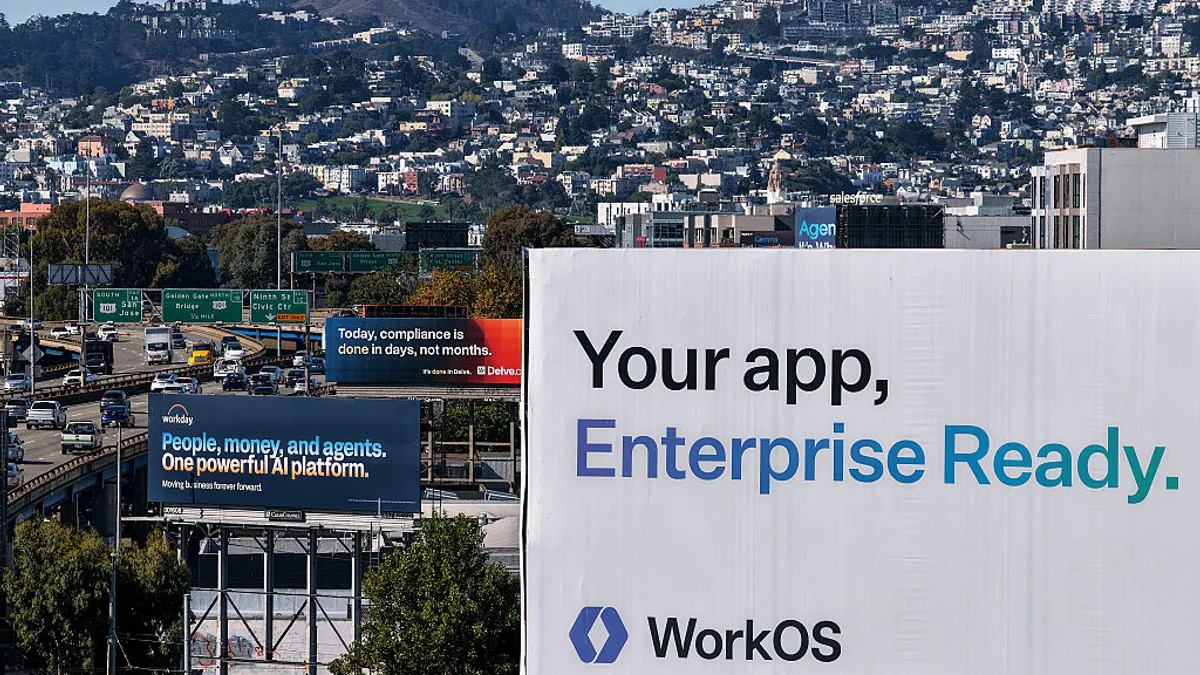A paradigm shift of talent and skills began prior to the COVID-19 pandemic in the United States. LinkedIn Learning's 2020 Workplace Learning Report released March 3 found that about half (51%) of learning and development professionals surveyed planned to launch upskilling programs this year. But the crisis has forced employers across the country to re-imagine ways to hire, upskill and reskill employees, according to industry experts.
It's become more evident that skill level outweighs pedigree, Chike Aguh, head of economic mobility micro-pathways at Education Design Lab, said. Aguh moderated a panel discussion during Talent Forward, an event hosted by the U.S. Chamber of Commerce Foundation Oct. 30 where experts discussed the future of the skill-based workforce. But a move in that direction means providing a path for lifelong learning, Sean Murphy, senior manager of opportunity at Walmart.org, said. The organization is engaging in active pilots with tech giants, including IBM, to define the skills needed for in-store associates, Murphy said. Walmart's leadership seeks to efficiently provide skill validation for techniques learned on the job, which is "something we haven't traditionally done," he said.
Externally, Walmart and the Walmart Foundation work with nonprofits, employers, government agencies and educational institutions to implement innovations aimed at improving upward mobility for workers, Murphy said. This includes building data standards to ensure interoperability — the ability of different information technology systems to exchange data accurately — within the retail sector. Interoperability makes skills transferable and "will continue to be a driver" in the support of employee training along with "open-source types of technology tools," he said.
Walmart is working with partners "to assure that we have equity, and we're not building any sort of bias" into new systems or processes, Murphy said. In June, Walmart announced the expansion of its Live Better U employee benefit program "to include in-demand skilled trade and digital skills programs," according to the company.
A wallet of portable credentials
The evolution of the workforce and the jobs of the future are moving toward a skills-based economy, "where skills themselves are the currency of the future," Alex Kaplan, global leader of Blockchain and AI for Industry Credentials at IBM, said.
If skills are going to be equivalent to currency, it's necessary to create an infrastructure with "trust, provenance and transparency," Kaplan said. It's necessary because "organizations like IBM and others are going to make consequential decisions based upon the information that they're receiving about people skills," he said. As companies assess the changing need for jobs, they will make hiring decisions and give work assignments based on the value of that person's skills for the future of the company, Kaplan said. "So, we really have to make sure that that information about skills is accurate [and] it's trusted," he said.
IBM is working on building infrastructure that can connect individuals seeking employment with employers seeking talent and people aiming to improve their skills with academic institutions, Kaplan said. "Blockchain technologies allow us to provide individuals with wallets where they can store the credentials and the other skills-based information they've earned across their entire career," he said. The wallet holder would own and control their information and be able to use it when moving from job to job, Kaplan said.
"Blockchain allows us to bring together information from a variety of different sources so that we're not just limited to the information that an employer might have within their own system," he said. "We can actually look at all of the skills-based data from a whole variety of organizations that an individual has been involved with."
Clarity on skills requirement
It's essential for employers to effectively articulate the skills desired for a particular role as well as provide information on how to obtain the skills, Peter Beard, senior vice president of regional workforce development at Greater Houston Partnership, said.
Amid the move to a skill-based approach for an employees' upward mobility, employers should emphasize the importance of digital skills, Beard said. The pandemic has driven "the transformation of technology in the workplace in a very different way," he said. "Workers are going to have to be technicians at some fundamental level going forward," Beard said.
Notably, digital skills gaps exist in industries now deemed essential, according to the National Skills Coalition (NSC). In April, NSC released fact sheets that assessed the condition of American workers' digital skills across five industry sectors — manufacturing, construction, health and social work, retail and hospitality. Roughly one-third (33%) of workers in the health and social work sector had limited or no digital skills, for example.
To prepare for a skill-based workforce, Murphy suggested that employers prioritize and truly understand the required skills needed for specific jobs at the company and learn how to validate an employees' knowledge of those skills. He also said it's a good idea to keep abreast of what the U.S. Chamber of Commerce and other organizations are doing in this area. Kaplan recommended employers review the latest work from the American Workforce Policy Advisory Board on learning and employment records. In addition, employers should "begin to work on codifying skills that are required in your industry," Kaplan said.























